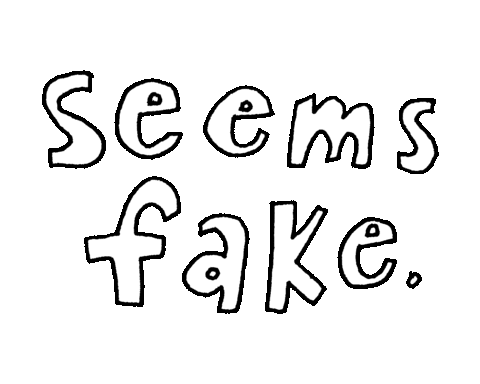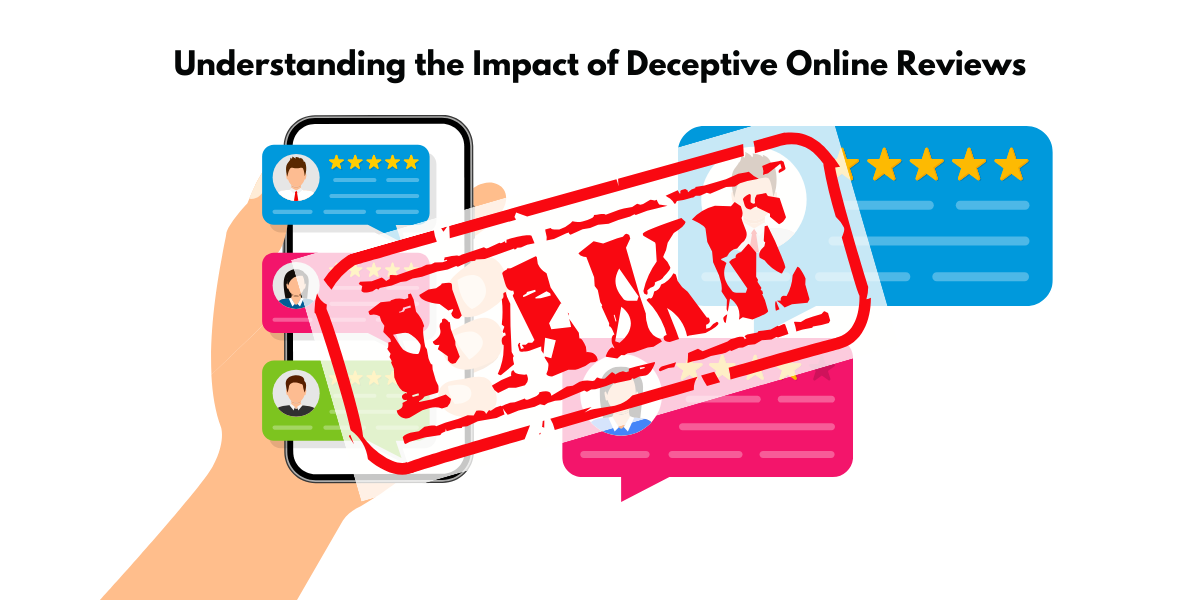The Rise of Fake Reviews
Understanding the Impact of Deceptive Online Reviews
Online shopping took on new life when the pandemic hit, with a broader and less-experienced audience transitioning to digital stores. Reviews became a vital tool for these consumers to navigate this unfamiliar territory, effectively replacing the ability to physically assess products. However, the reliance on reviews has a dark side; fake reviews can sway purchasing decisions, skewing the market and giving an unfair advantage to the businesses that deploy them.
Tracing the Origin of Paid and Inflated Reviews
Paid and inflated reviews have their roots in the competitiveness of e-commerce. As businesses realized that consumer behavior could be heavily influenced by online feedback, the allure of guaranteeing positive reviews became irresistible. To meet this demand, review farms sprang up, offering packages of glowing reviews in exchange for payment. These services, often masquerading as legitimate marketing firms, can have an international footprint – exploiting global connectivity to sell deception. It’s a marketplace that operates in the shadows, linking through social media and underground forums, bringing the ethics of digital commerce into question.

Tackling the Fake Review Problem
Strategies Consumers Use to Spot Fake Reviews
Smart shoppers have become amateur detectives in their own right, developing savvy strategies to spot the fakes in a sea of seemingly sincere testimonials. First off, they scrutinize the time stamps: a cluster of rapturous reviews posted in quick succession could wave a red flag. Also, they’re on high alert for parroted phrases; repetition is the echo of inauthenticity.
The keenest observers dig into reviewers’ track records—profiles dominated by unmitigated praise are likely not to be trusted. And finally, they seek out that stamp of authenticity: the ‘Verified Purchase’ badge. This little check mark is their talisman, guiding them through the tangled web of consumer feedback to the most credible voices.
Tools and Technologies in the Fight Against Deception
As consumers wage war on falsities, technology charges in as a formidable ally. Artificial intelligence and machine learning algorithms are now trained to parse through reviews with precision, flagging anomalies—sudden influxes of five-star ratings or peculiar language patterns that humans might miss. Browser extensions have surfaced, too, giving shoppers an on-the-spot assessment of review credibility without leaving the product page.
Text analysis software is another front-runner in untangling the genuine from the glib, using sentiment analysis to detect unnatural spikes in emotion. Plus, blockchain technology might soon offer a tamper-proof vault for reviews, making each feedback traceable and transparent. It’s an impressive arsenal, growing by the day as new ventures rise to meet the challenge of online deception.

Legal Frameworks Against Online Fakery
How the FTC is Stepping Up the Battle
The Federal Trade Commission (FTC) is donning its armor in the battle against fake reviews, and the fight is getting serious. With new rules on the table, the FTC is proposing hefty fines that could potentially make businesses think twice about gaming the system. A staggering $50,000 fine per fake review for each time a consumer encounters it? That’s enough to send shockwaves through the ranks of those who might consider underhanded tactics to boost their image.
This isn’t just about enforcement; it’s about deterrence. The proposed regulations are a clear signal that the FTC is prioritizing consumer trust in the digital marketplace as a cornerstone of fair trade. With a combination of financial penalties and public scrutiny, they’re cutting straight to the heart of the issue, aiming to restore integrity one review at a time.
Global Legal Approaches to Curb Fake Reviews
Around the globe, countries are taking a stand, each fashioning their legal armory to combat counterfeit commendations. In Europe, for example, The Consumer Protection Cooperation network is fortifying cross-border collaboration, recognizing that fake review schemes don’t stop at national borders. Penalties are getting tougher, and consumer protection laws are increasing including provisions specifically targeting fake reviews.
China has taken sweeping action, stipulating that fake review purveyors could face penalties under its anti-unfair competition law. And in Australia, companies could pay up to $1.1 million AUD for misleading endorsements. It’s becoming evident that worldwide, there’s a movement towards not just penalizing the act of fabricating reviews, but also creating frameworks that prevent such instances from arising in the first place.

The Future Without Fake Reviews
Predictions on The Effectiveness of New Measures
Predictions regarding new anti-fake review measures are cautiously optimistic. Many experts agree that while no system is foolproof, the combination of more stringent laws, advanced technologies, and increased public awareness could significantly deter the proliferation of false endorsements. Education campaigns and clear labeling of sponsored content, alongside the threat of legal consequences and fines, add layers of defense.
However, as enforcement tightens, perpetrators may evolve new methods to outwit the system. The true measure of success will be observed over time, in the gradual shift of trust back to the review system. If these initiatives can recalibrate the scales, ensuring that authenticity outweighs deception, consumers will once again be able to shop with confidence.
Could Robust Laws Change the Review Landscape?
The potential for robust laws to reshape the review landscape is significant. With heightened legal consequences, businesses could be dissuaded from engaging in or turning a blind eye to the temptation of fake reviews. More importantly, robust laws may foster a culture of accountability, wherein both businesses and review platforms tighten their practices and monitoring processes.
In this possible new era, the integrity of reviews could be restored, enhancing the e-commerce experience for both sellers and buyers. However, while laws set the boundaries, it’s the enforcement that determines their efficacy. Consistent and unbiased application of these laws will be key to driving the change that’s needed to rebuild trust in online reviews.

The Role of Businesses and Platforms
Corporate Responsibilities Toward Honest Reviews
Businesses hold a pivotal role in upholding the sanctity of honest reviews. Their responsibilities include establishing clear policies against fake reviews, educating employees on ethical marketing, and implementing processes to detect and remove fabricated endorsements. By proactively monitoring their online presence and engaging transparently with customers, companies can foster a culture of trust.
More so, they’re expected to adhere to advertising laws and cooperate with regulatory bodies, a commitment that should be stated clearly and upheld rigorously. It’s a two-way street—businesses must also responsibly address unjust negative reviews, ensuring fairness and accuracy in the feedback they receive.
Platform-Mediated Solutions to Ensure Authenticity
Online platforms are stepping up to ensure the reviews you read are the real deal. They’re building smarter algorithms to filter out the phonies, fostering a transparent review process. Platforms are also starting to display a heavier hand, meting out bans to sellers who dabble in deception.
It’s also about empowering you, the user, by providing better reporting tools to flag suspicious reviews. They’re engaging in open dialogue, too—transparently showcasing their efforts and inviting consumer participation in safeguarding authenticity. This fortified trust between platforms and users could be the catalyst for a cleaner, more reliable review ecosystem.

Consumer Advocacy in the Digital Age
Empowering Shoppers Through Education and Awareness
You, the savvy shopper, are being armed with the knowledge needed to navigate the murky waters of online reviews. Consumer advocacy groups and regulatory agencies alike are launching educational initiatives to heighten your awareness. They offer workshops, online courses, and resources that teach how to discern genuine reviews from fake ones. By knowing what to look out for, such as verified purchase labels and realistic assessment of products, you become a more empowered and informed consumer.
These efforts are fostering a more critical approach to online reviews, encouraging you to look beyond the star rating and delve into the substance of what’s being said. With this power of knowledge, the hope is that fraudulent reviews will lose their influence, restoring your trust in the shared digital marketplace.
Mobilization for Ethical Online Practices
The call for ethical online practices is echoing louder than ever, with consumers banding together to demand integrity in e-commerce. Social media campaigns, consumer watchdog groups, and online petitions are just the beginning. They’re holding businesses and platforms accountable, advocating for transparency and truth in advertising.
This mobilization isn’t just pressuring businesses to clean up their act; it’s also a signal to lawmakers the world over that it’s time for stricter regulations. It’s a movement that aims to uphold the values of fairness and honesty that are all too easily overshadowed in the digital age. By staying vigilant and vocal, consumers are charting the course toward a future where ethical practices aren’t just preferred – they’re the norm.

Conclusion
Navigating the sea of online reviews can often feel overwhelming, but research like the one from Cornell University offers a beacon to help us avoid the rocks of deception. Whether you’re booking a hotel or buying a new gadget, remembering those cues—specificity, a focus on the physical rather than the experiential, and a balance of pronouns—can be incredibly helpful. And while the digital world keeps evolving with clever algorithms, there’s still undeniable value in good, old-fashioned word-of-mouth recommendations. It’s not just about verifying the legitimacy of a review but also about the trust and personal connection that comes with advice from someone you know.
So next time you’re about to click ‘add to cart’ on a five-star-rated product or book that hotel with rave reviews, take a pause. A quick chat with friends and family, or a closer look at the language in those reviews, might just save you from unwanted surprises and lead you to a choice you are genuinely satisfied with. Trust is earned, and in the landscape of consumer experiences, it appears that the most reliable sources may still be the people in our lives and the simple, concrete words of a truthful review.

